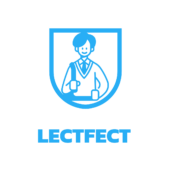Where curiosity meets clarity—no query too complex, no deadline too tight.
In an academic world that never slows down, students and lifelong learners are constantly racing against time. What if there were a single resource that could untangle tough homework problems, simplify dense textbooks, and even polish your writing—all while teaching you how to think? That’s exactly where Question.AI steps in. More than just another study app, this AI-powered platform acts like a 24/7 mentor, blending cutting-edge technology with practical learning strategies. Let’s explore how it’s reshaping modern education—one solved problem at a time.
Beyond Basic Homework Help: A Toolkit for Modern Learners
While most educational apps focus on single solutions, Question.AI takes a different approach. Built on the principle “Ask anything, learn everything,” its features work together like a well-orchestrated team. Picture this: You’re stuck on calculus homework at midnight. Instead of flipping through notes or scrolling through forums, you’ve got an entire academic support system in your pocket.
Here’s what makes it stand out:
The Always-Available Tutor (Ask AI)
Forget rigid office hours. Whether you’re deciphering Shakespearean metaphors at dawn or debugging Python code after dinner, this feature acts like a patient expert. It doesn’t just spit out answers—it walks you through solutions.
For instance, when tackling inequalities like:
-14 ≤ -9 + x ≤ -7,
it breaks down each step:
“First, let’s free the x! Add 9 to all three parts: -14+9 becomes -5, while -7+9 gives 2.”
“So, -5 ≤ x ≤ 2. See how we balanced the equation?”
This conversational guidance helps concepts stick better than traditional textbook explanations.
Calculator? More Like a Math Whisperer
Unlike basic number-crunching tools, this integrated calculator understands context. Feed it a physics equation involving velocity and mass, and it won’t just compute numbers—it’ll flag unit inconsistencies or suggest alternative formulas.
Book Summaries That Read Between the Lines
Short on time? The summary tool acts like a literary time-saver.

Take War and Peace: instead of skimming 1,200 pages, you’d get key themes about the futility of war and the ripple effects of individual choices—complete with historical context about Napoleonic Russia.
Textbook Solutions with a Teaching Twist
This isn’t just an answer key. For a chemistry problem about molarity, it might add: “Remember, concentration errors often happen during dilution. Double-check your volume measurements!”
When AI Becomes Your Writing Coach
Here’s where Question.AI surprises many users. Need to draft a sociology paper on gender roles? The AI Writing tool won’t just fix commas—it’ll suggest stronger transitions (“Instead of ‘on the other hand,’ try ‘contrary to popular discourse…’”) and flag logical gaps in arguments.
Real-life scenario:
A student writing about climate policy might receive feedback like:
“Your data about rising CO2 levels is solid, but consider addressing counterarguments about economic impacts. Maybe add a line like: ‘While critics emphasize short-term costs, longitudinal studies reveal…’”
Breaking Language Barriers, Building Bridges
With support for 50+ languages, the platform turns multilingual research from a headache into a superpower. Imagine analyzing French Enlightenment texts for a philosophy class—without drowning in translation apps. The tool preserves nuanced meanings, so “liberté, égalité, fraternité” isn’t reduced to a bland “freedom and equality.”
Why It Works: The Science Behind the Scenes
Question.AI’s effectiveness lies in its balanced design:
- Adaptive Learning Paths: The more you use it, the better it anticipates your needs. Struggle with quadratic equations? It’ll start serving extra graphing examples.
- Human-Like Reasoning: Instead of robotic logic chains, solutions mimic how tutors explain concepts—complete with analogies (“Think of cell membranes like bouncers at a club…”) and real-world connections.
- Error Prevention: Algorithms detect common mistakes before they happen. Input “photosynthesis formula” and it’ll preemptively ask: “Need the basic equation (6CO₂ + 6H₂O → C₆H₁₂O₆ + 6O₂) or the Calvin cycle breakdown?”
From Lecture Halls to Late-Night Study Sessions: User Stories
- Maria (Engineering Major): “The calculator saved my thermodynamics project. When I mixed up kJ and kcal, it caught the error and explained energy unit conversions better than my TA.”
- Liam (High School Junior): “Book summaries help me participate in class discussions without speed-reading. Last week, I quoted Nietzsche’s ‘abyss’ metaphor correctly because the summary highlighted it.”

- Gupta (Economics Professor): “I recommend it for thesis students. The AI writing tool spots statistical misinterpretations I’d otherwise catch during office hours.”
Free Mindvalley Resources to Uplift Your Mind, Body, and Spirit
Looking to level up your personal growth journey with zero cost upfront? Explore Mindvalley’s collection of free webinars, tools, and downloadable guides—designed to elevate your mindset, relationships, health, and soul alignment.
From unlocking altered brainwave states with the Silva Ultramind System, to tapping into your infinite potential through The Art of Manifesting, these expertly crafted resources help you break through mental barriers and expand your consciousness.
You’ll also find free quizzes, journals, and programs tailored to every dimension of self-development—including abundance, focus, relationships, energy mastery, and health. It’s a holistic wellness toolkit for the modern seeker.
Explore the full suite of Mindvalley’s free personal growth resources and start transforming today.
Final Thought: Why Settle for Ordinary Study Tools?
In a digital landscape cluttered with half-baked apps, Question.AI stands out by doing what great educators do—making complex ideas accessible, encouraging critical thinking, and adapting to individual needs. Whether you’re solving equations at 2 AM or polishing a thesis statement, it’s less about finding quick answers and more about mastering the art of learning itself.
Ready to upgrade your academic toolkit? With Question.AI, every challenge becomes a stepping stone, every question a chance to grow. After all, education isn’t just about knowing—it’s about understanding.
Question.AI – Your questions, our solutions. Always.

